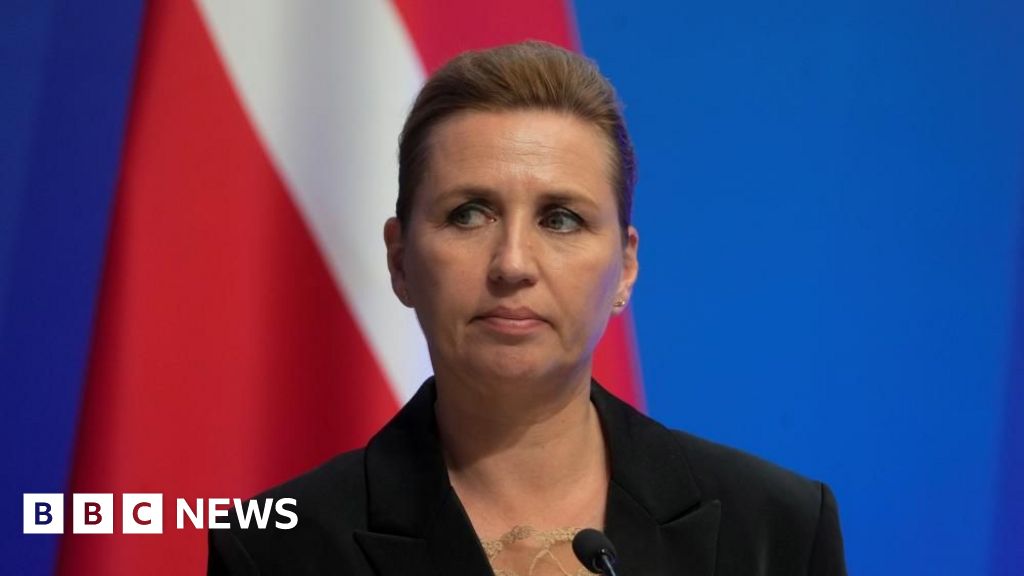In Copenhagen, Herman Moyano, a mail carrier with PostNord for seven years, prepares for his daily rounds. He reflects on the dwindling number of letters he delivers, with most mail now comprised of bills rather than personal correspondence. The decline is alarming; PostNord revealed last March that letter services will be discontinued by year's end, marking the end of a 400-year tradition.
"Danes receive an average of just one letter a month," says Kim Pedersen, CEO of PostNord Denmark. The company is refocusing on the more profitable parcel delivery segment, letting go of 2,200 workers, while concurrently adding 700 positions to support parcels, a boom driven by online shopping preferences.
Long gone are the days when PostNord operated several letter sorting facilities. The latest statistics show a dramatic drop from 1.4 billion letters handled in 2000 to only 110 million last year, with numbers continuing to decline sharply as digital alternatives become commonplace.
Copenhagen resident Nikolaj Brøchner Andrès admits, "I don’t think I've sent a letter in years." The Danish government has prioritized a digital-first approach, with many services now conducted electronically, supported by a "digital by default" policy in place for over a decade.
Market dynamics are also shifting, with the cost of postage set to rise due to new competition laws and VAT regulations. As a result, letter volumes have diminished further, increasing the urgency for PostNord to adjust its strategy.
However, this decline is not unique to Denmark. Postal sector expert Hazel King notes similar patterns across Europe, with current volumes dropping by 30% or more in major markets. Germany and Switzerland experience slower downturns, while areas like the United States report declines of approximately 46%.
Concerns arise regarding services for the elderly and rural residents, as the removal of 1,500 post boxes could lead to hardships for those accustomed to traditional mail. The advocacy group DaneAge expresses apprehension, stating that older individuals in rural areas might struggle to adapt.
Yet, as PostNord departs from primary letter delivery services, the private firm DAO plans to expand its operations. Already a major player in parcel delivery and with nationwide reach, DAO aims to provide uninterrupted service to rural communities and proposes innovations to enhance delivery efficiency.
DAO's chief executive, Hans Peter Nissen, reassures the public that although the landscape is changing, their commitment to sustaining postal services remains strong. They aim to handle up to 40 million additional letters in future years.
Despite the shift toward digital communication, there are still advocates for traditional letter writing. Copenhagener Jette Eiring Williams highlights this sentiment, emphasizing the personal touch and emotional connection that handwritten letters provide.
In a world where digital communication dominates, Denmark's experience foreshadows potential global trends, illustrating both the challenges and adaptations that come with evolving technologies in society.
"Danes receive an average of just one letter a month," says Kim Pedersen, CEO of PostNord Denmark. The company is refocusing on the more profitable parcel delivery segment, letting go of 2,200 workers, while concurrently adding 700 positions to support parcels, a boom driven by online shopping preferences.
Long gone are the days when PostNord operated several letter sorting facilities. The latest statistics show a dramatic drop from 1.4 billion letters handled in 2000 to only 110 million last year, with numbers continuing to decline sharply as digital alternatives become commonplace.
Copenhagen resident Nikolaj Brøchner Andrès admits, "I don’t think I've sent a letter in years." The Danish government has prioritized a digital-first approach, with many services now conducted electronically, supported by a "digital by default" policy in place for over a decade.
Market dynamics are also shifting, with the cost of postage set to rise due to new competition laws and VAT regulations. As a result, letter volumes have diminished further, increasing the urgency for PostNord to adjust its strategy.
However, this decline is not unique to Denmark. Postal sector expert Hazel King notes similar patterns across Europe, with current volumes dropping by 30% or more in major markets. Germany and Switzerland experience slower downturns, while areas like the United States report declines of approximately 46%.
Concerns arise regarding services for the elderly and rural residents, as the removal of 1,500 post boxes could lead to hardships for those accustomed to traditional mail. The advocacy group DaneAge expresses apprehension, stating that older individuals in rural areas might struggle to adapt.
Yet, as PostNord departs from primary letter delivery services, the private firm DAO plans to expand its operations. Already a major player in parcel delivery and with nationwide reach, DAO aims to provide uninterrupted service to rural communities and proposes innovations to enhance delivery efficiency.
DAO's chief executive, Hans Peter Nissen, reassures the public that although the landscape is changing, their commitment to sustaining postal services remains strong. They aim to handle up to 40 million additional letters in future years.
Despite the shift toward digital communication, there are still advocates for traditional letter writing. Copenhagener Jette Eiring Williams highlights this sentiment, emphasizing the personal touch and emotional connection that handwritten letters provide.
In a world where digital communication dominates, Denmark's experience foreshadows potential global trends, illustrating both the challenges and adaptations that come with evolving technologies in society.


















